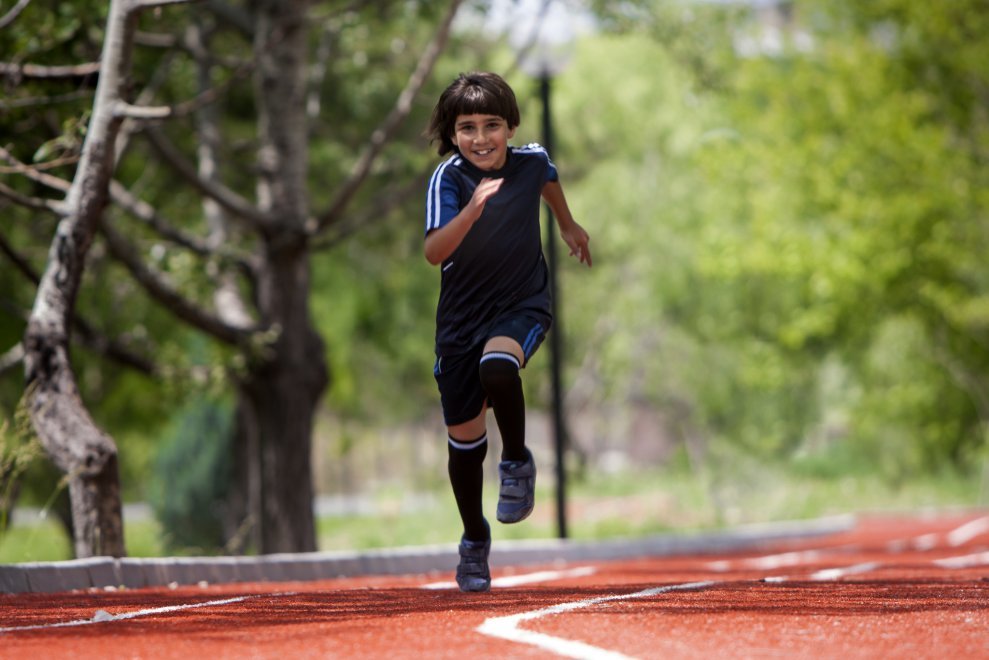While it is important to rest after an intense season of soccer, the off-season is also a great opportunity for players to work on their game. If a player wants to stay fit during the off-season, then it is their responsibility to remain disciplined and true to their routine. Although off-season training will be different for every team, following the general guideline below will keep a player’s skills sharp:
Technical and Tactical Training
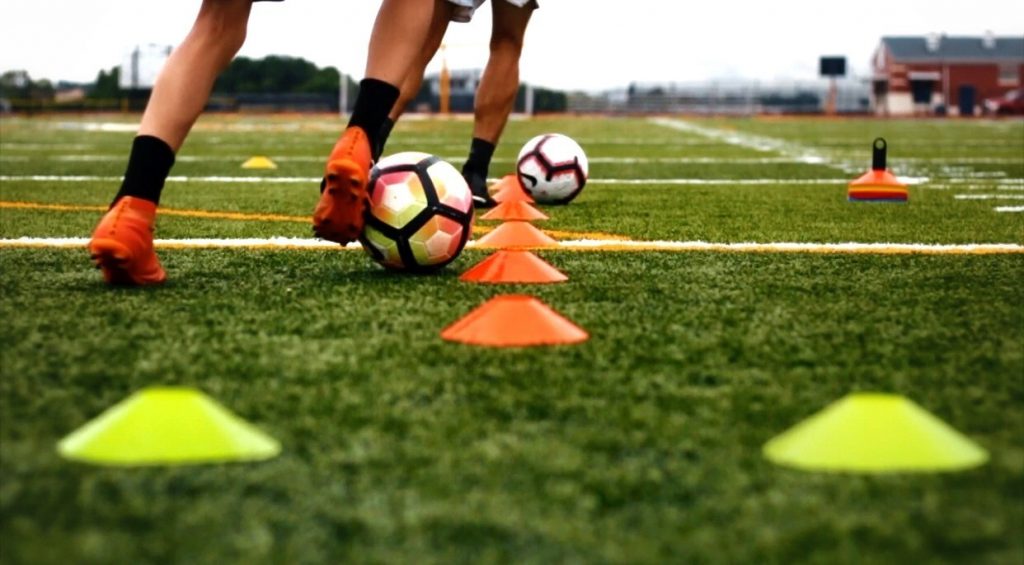
Improving one’s technical abilities should be a focal point of what to work on during the off-season. Juggling, dribbling through cones, wall passing, shooting, and heading should all be done to become a more technical player.
Tactical training is much harder to do alone, however there is a plethora of online resources that could assist with tactical information to improve a player’s soccer IQ. Studying the best professionals in the game and their movements can teach younger players on how to better implement these movements into their own game.
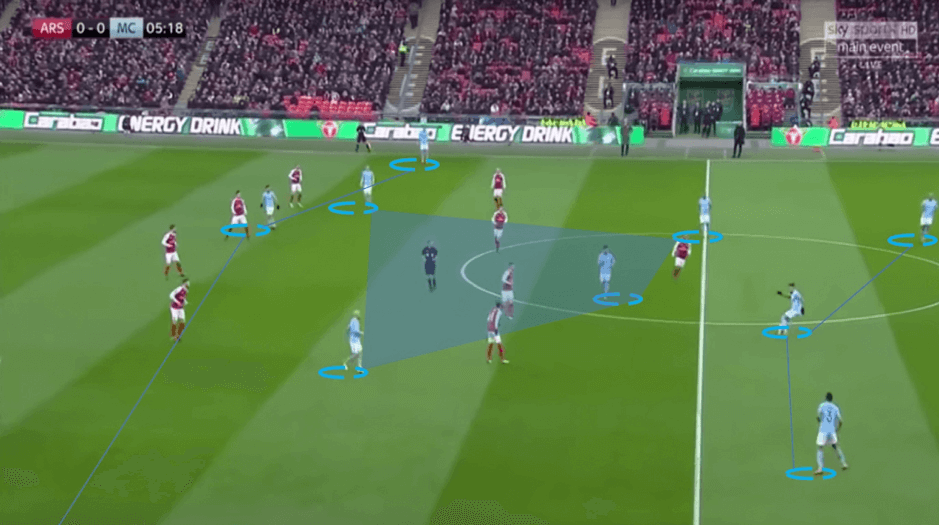
Agility
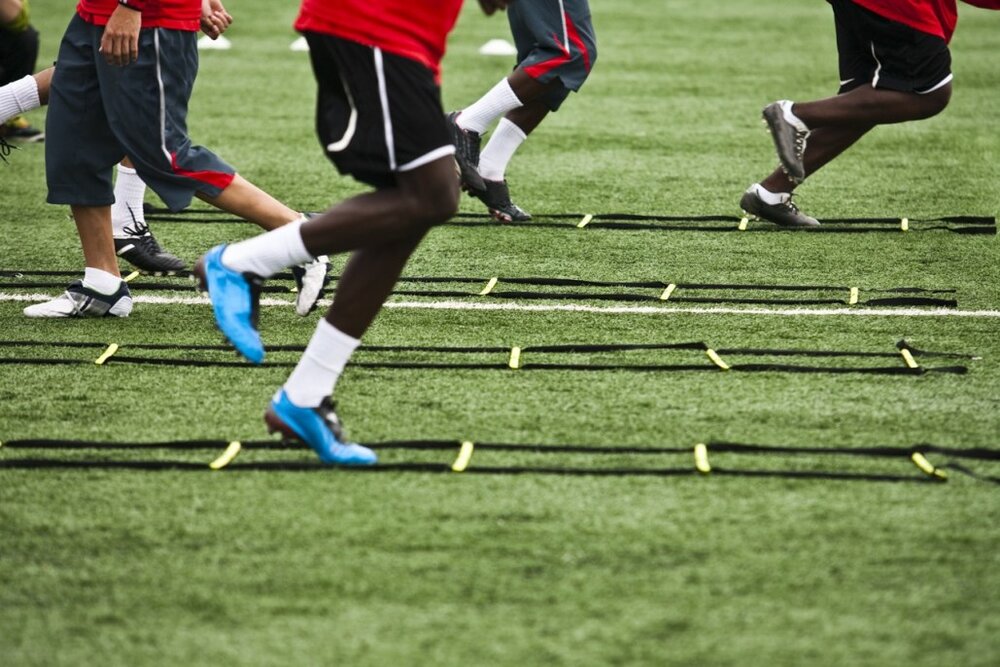
Playing games throughout the year will take a toll on a player’s body, diminishing a player’s quickness throughout the season. Agility exercises will help the player to regain their sharpness and quick movement. Effective soccer players should lose little momentum when they change direction with the ball, which is why being agile is so important. Activities that help improve agility include box drills, ladder shuffle and jumping rope.
Cardiovascular Endurance
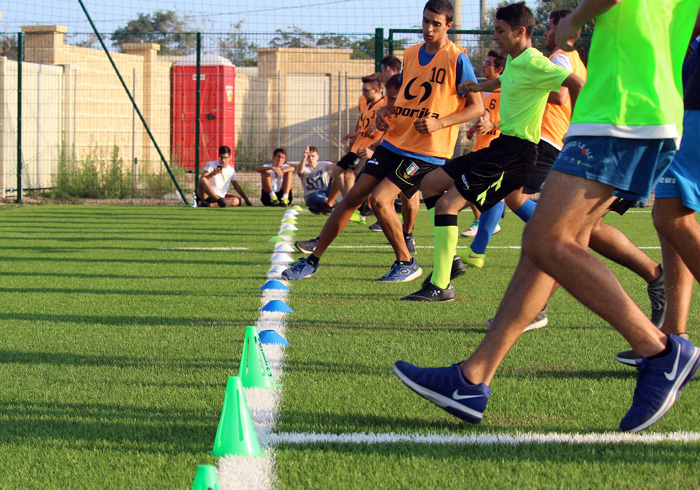
Cardio training will help a player be just as effective and efficient in the last minute of the game as they were in the first minute. Training may consist of long-distance runs, or intervals of high-intensity exercises, but should always be designed to simulate game conditions. Cardio training readies the body to withstand long periods of activity, allowing the body to perform at its best for a longer period of time. Cardio should also be done in all types of weather, as the player will not always be playing in perfect conditions.
Routines for Age Groups
The fitness routine and intensity of the routine will depend on the age group, as different ages are at different stages with their body.
U6 – U8
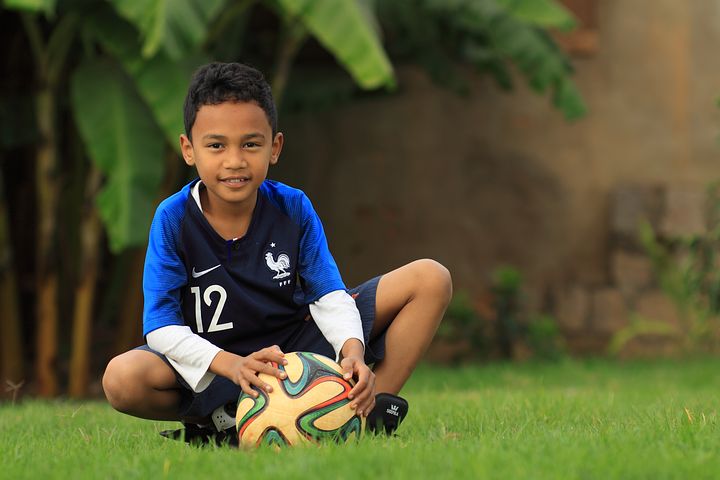
Within this age group, players should focus their attention on physical and technical exercises. Physical exercises will develop speed, agility, coordination and balance, perception and awareness, and basic motor skills. Technical exercises should simply focus on improving dribbling, passing and receiving.
U9 – U12
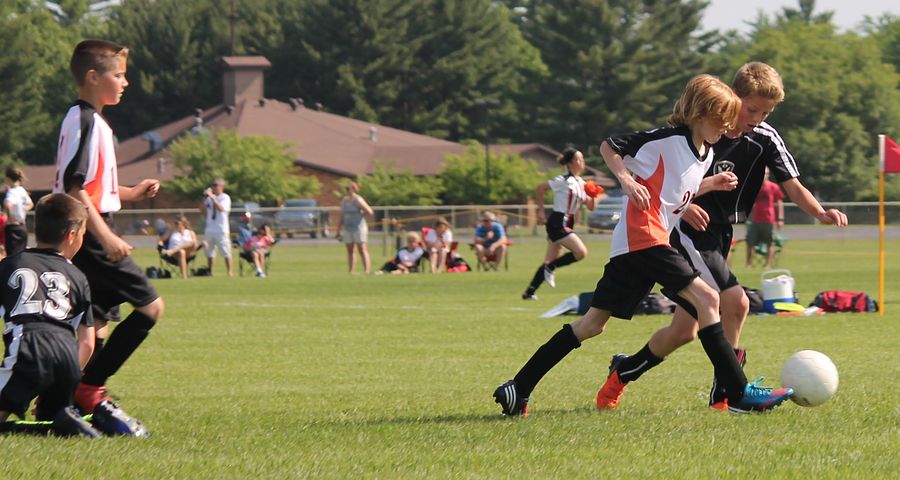
Technical exercises for this age group include turning after receiving passes, shooting, ball control, one-versus-one defending, and shielding the ball. Drills for reaction and acceleration should also be incorporated.
Tactical aspects of the game are introduced at this stage, so it is important to feature exercises for possession, playing out from the back, combination play, finishing in the final third, as well as defensive principles.
U13 – U14
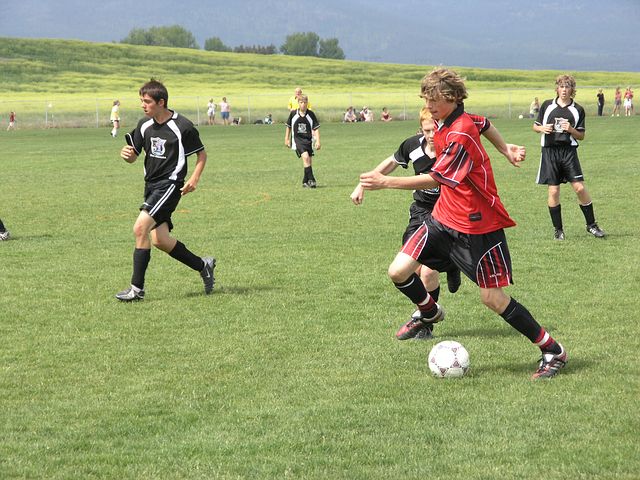
To build on the basics of tactical training, there should be exercises for team-defending, zonal defending, and attacking movement. Technical exercises for this stage include running with the ball with close control, aerial control and heading. There will also be a greater focus on endurance and overall strength and power.
U15 – U18
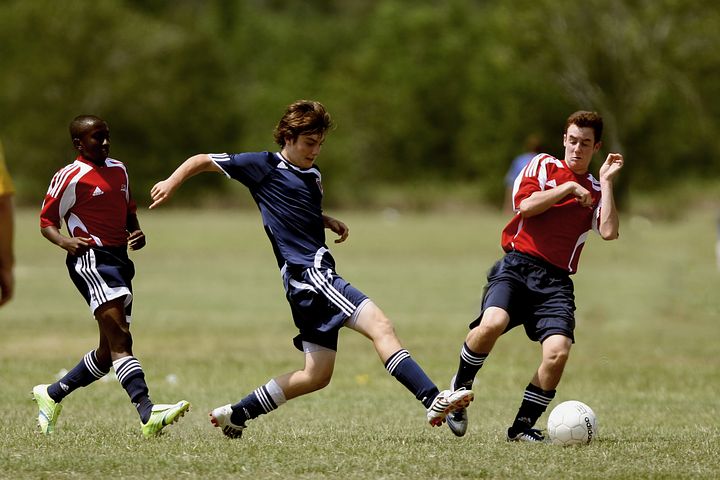
Players at this age are ready to play in the first team, so it is no surprise that their fitness routine is much more advanced. Tactical training features exercises in counter-attacking, recovery, and pressing. Crossing and finishing should also be incorporated, as well as explosive strength and speed drills.

